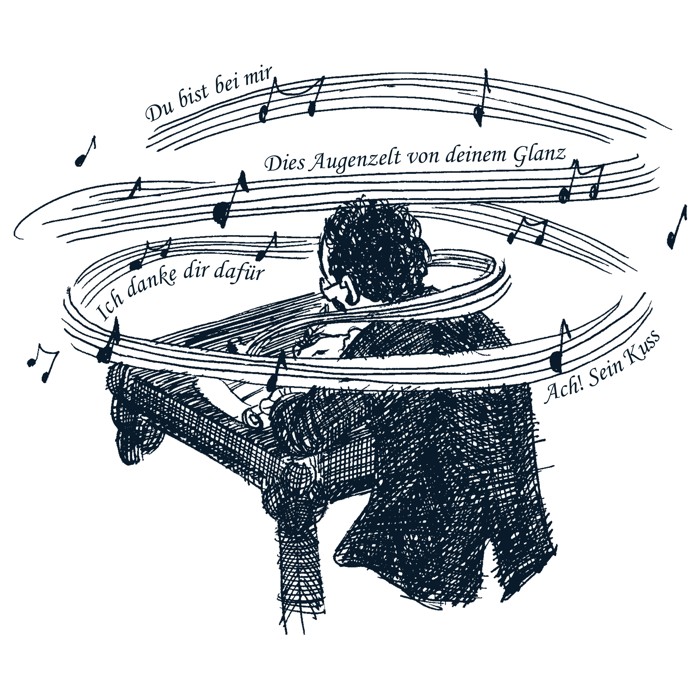 Do you like tales? I do, very much. One of my favorite stories when I was a child was about a Princess whose father wanted to marry her with an old, solemn and boring Minister. The princess couldn't refuse him so she requested, as a pledge of love, a dress made of moonlight shafts which fit into half a nutshell; she was sure the Minister wouldn’t be able to get it. However, a few days later, the Princess had her dress so she demanded a second pledge of love: a dress made of sunlight shafts that that fit into half nutshell. When the Minister gave her the dress she had required, the Princess, then, made her last attempt: she wanted a cape made of a skin strip of each animal to be found in the Kingdom. As you can imagine, the Minister went back with the cape. The Princess didn't want to marry him by any means so that night, she covered herself with her new cape and fled [...]
Do you like tales? I do, very much. One of my favorite stories when I was a child was about a Princess whose father wanted to marry her with an old, solemn and boring Minister. The princess couldn't refuse him so she requested, as a pledge of love, a dress made of moonlight shafts which fit into half a nutshell; she was sure the Minister wouldn’t be able to get it. However, a few days later, the Princess had her dress so she demanded a second pledge of love: a dress made of sunlight shafts that that fit into half nutshell. When the Minister gave her the dress she had required, the Princess, then, made her last attempt: she wanted a cape made of a skin strip of each animal to be found in the Kingdom. As you can imagine, the Minister went back with the cape. The Princess didn't want to marry him by any means so that night, she covered herself with her new cape and fled [...]
This return to childhood comes in handy because Rheinlegendchen, the Lied by Mahler we're listening this week, is also a tale that shares something with the one I told you. The song narrator, a peasant girl, misses her beloved who is at the King's service. The girl has a ring and thinks of throwing it into the river: the ring will reach the sea, it will be swallowed by a fish, the fish will be served on the king’s table, the King will find the ring, the beloved will recognize the ring and eventually, will return it to the girl. Do you think that is a complicated strategy? Stranger things happen. The element that ties both stories is the ring; the Princess also uses hers to draw the King's attention. However, she doesn't leave anything to chance and puts the ring in a cake she is making for the King for him to find.
In her book Erinnerungen an Gustav Mahler, Natalie Bauer-Lechner explains she always wanted to know how Mahler composed and he got impatient because it was so difficult to explain. Thanks to the curiosity of Frau Bauer-Lechner, we know now how Rheinegendchen was composed:
Nobody better than the composer can explain his work so I won't add anything else... I'm glad to say that Mahler was wrong about the audience reaction, Rheinlegendchen is one of the most loved Wunderhorn Lieder since the day it was premiered: that day, they loved it so much that it was given as an encore. Honestly, it doesn't surprises me at all. The temporary title that Mahler gave to the song emphasized the dance character of the song, the ländler he used so often, but despite being a folklike song, as he says, its sophistication reminds us of the ländler’s urban kin, the Viennese waltz. It's indeed a very special Lied.
I hope you enjoy this little story sang by Sarah Connolly accompanied by Philippe Herreweghe conducting the Orchestre des Champs Elysées.
Bald gras ich am Neckar,
Bald gras ich am Rhein,
Bald hab ich ein Schätzel,
Bald bin ich allein.
Was hilft mir das Grasen,
Wenn d’Sichel nicht schneidt,
Was hilft mir ein Schätzel,
Wenn’s bei mir nicht bleibt.
So soll ich denn grasen
Am Neckar, am Rhein,
So werf ich mein goldenes
Ringlein hinein.
Es fließet im Neckar
Und fließet im Rhein,
Soll schwimmen hinunter
Ins Meer tief hinein.
Und schwimmt es das Ringlein,
So frißt es ein Fisch,
Das Fischlein soll kommen
Aufs Königs sein Tisch.
Der König tät fragen,
Wems Ringlein sollt sein?
Da tät mein Schatz sagen,
Das Ringlein g’hört mein.
Mein Schätzlein tät springen,
Berg auf und Berg ein,
Tät mir wiedrum bringen
Das Goldringlein fein.
Kannst grasen am Neckar,
Kannst grasen am Rhein,
Wirf du mir nur immer
Dein Ringlein hinein.























































Comments powered by CComment